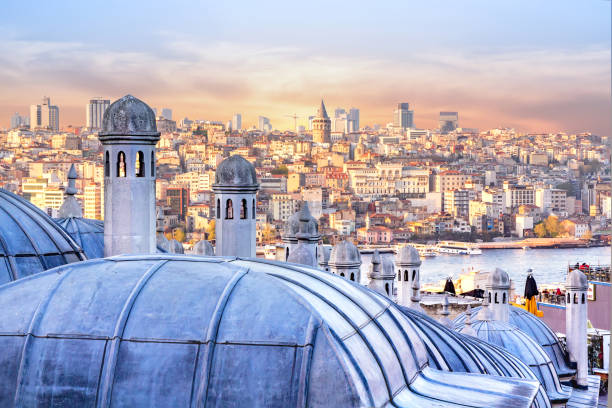Turkey, officially the Republic of Turkey, is a country straddling South eastern Europe and Western Asia. It shares borders with Greece and Bulgaria to the northwest; the Black Sea to the north; Georgia to the northeast; Armenia, Azerbaijan, and Iran to the east; Iraq to the southeast; Syria and the Mediterranean Sea to the south; and the Aegean Sea to the west. Istanbul, the largest city, is the financial centre, and Ankara is the capital. Turks form the vast majority of the nation’s population, and Kurds are the largest minority.
One of the world’s earliest permanently settled regions, present-day Turkey was home to important Neolithic sites like Göbekli Tepe, and was inhabited by ancient civilisations such as the Hattians and Anatolian peoples Hellenization started in the area during the era of Alexander the Great and continued into the Byzantine era. The Seljuk Turks began migrating in the 11th century, and the Sultanate of Rum ruled Anatolia until the Mongol invasion in 1243, when it disintegrated into small Turkish principalities. Beginning in the late 13th century, the Ottomans started uniting the principalities and conquering the Balkans, and the Turkification of Anatolia increased during the Ottoman period. After Mehmed II conquered Constantinople in 1453, Ottoman expansion continued under Selim I. During the reign of Suleiman the Magnificent, the Ottoman Empire became a global power. From the late 18th century onwards, the empire’s power declined with a gradual loss of territories and wars. In an effort to consolidate the weakening empire, Mahmud II started a period of modernisation in the early 19th century. The 1913 coup d’état effectively put the country under the control of the Three Pashas, who were largely responsible for the Empire’s entry into World War I in 1914. During World War I, the Ottoman government committed genocides against its Armenian, Assyrian and Pontic Greek subjects. After the Ottomans and the other Central Powers lost the war, the Ottoman Empire was partitioned. The Turkish War of Independence against the occupying Allied Powers resulted in the abolition of the Sultanate on 1 November 1922, the signing of the Treaty of Lausanne (which superseded the Treaty of Sèvres) on 24 July 1923 and the proclamation of the Republic on 29 October 1923. With the reforms initiated by the country’s first president, Mustafa Kemal Atatürk, Turkey became a secular, unitary and parliamentary republic; which was later replaced by a presidential system with a referendum in 2017. Since then, the new Turkish governmental system under president Recep Tayyip Erdoğan and his party, the AKP, has often been described as a populist, conservative and authoritarian regime.
Turkey is a regional power and a newly industrialized country, ranking very high in the Human Development Index, with a geopolitically strategic location. Its economy is the twentieth-largest in the world by nominal GDP, and the eleventh-largest by PPP. It is a charter member of the United Nations, an early member of NATO, the IMF, and the World Bank, and a founding member of the OECD, OSCE, BSEC, OIC, and G20. After becoming one of the early members of the Council of Europe in 1950, Turkey became an associate member of the EEC in 1963, joined the EU Customs Union in 1995, and started accession negotiations with the European Union in 2005.
